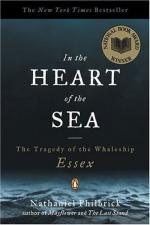|
This section contains 382 words (approx. 2 pages at 300 words per page) |

|
Masochism in Tragedy
The modern definition of tragedy is incomplete; it describes a misfortunate event at a point in time. Aristotle's interpretation of the word calls for "pity and fear" as well, but the pity and fear that Aristotle writes about are forces harnessed by characters that use these extraordinary emotions to prove a greater point about society. These tragic figures are willing to go to extremes because love overcomes their logic, creating a within them a willingness to be a martyr for their glorified cause. Tragedy is a state of being that describes a situation in which a character, blinded by love, willingly suffers to justify their cause and to achieve personal satisfaction. In tragedy, pain and pleasure come hand in hand.
In the beginning of Sophocles' Antigone, "Love, unconquerable" (224) prompts Antigone to defy Creon's mandate against the proper burial of her brother. She claims that her...
|
This section contains 382 words (approx. 2 pages at 300 words per page) |

|


